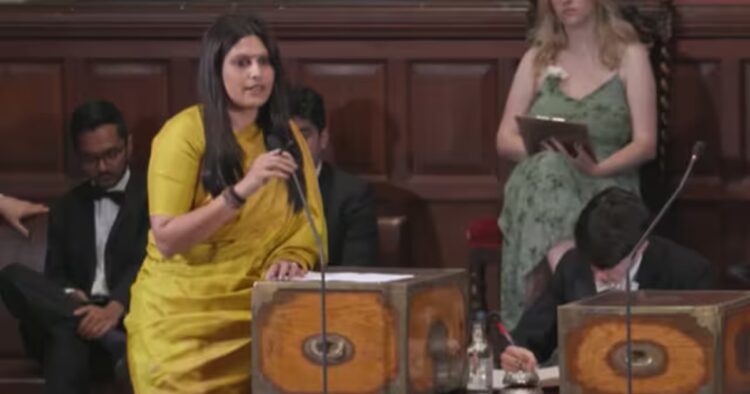Prime Minister Narendra Modi applauded Bharatiya Journalist Palki Sharma, who a year ago highlighted Bharat’s success story through data and anecdotes in a powerful speech in Britain that has now gone viral on social media platforms.
“You have given a wonderful glimpse of the massive transformations taking place across India, @palkisu!” PM Modi posted on X (formerly Twitter), tagging Sharma, Managing Editor, Firstpost.
My remarks at the Oxford Union almost a year ago have made their way across social media. I gave a perspective on what has changed in India, citing events and anecdotes to support my argument. I’m overwhelmed to see how it has resonated with so many of you. 🙏…
— Palki Sharma (@palkisu) April 25, 2024
Hours before the PM’s post, as the video of her speech started getting shared widely, Sharma herself took to X and said she was ‘overwhelmed’ by the response.
“My remarks at the Oxford Union almost a year ago have made their way across social media. I gave a perspective on what has changed in India, citing events & anecdotes to support my argument. I’m overwhelmed to see how it has resonated with so many of you,” she posted.
In a 10-minute video, Sharma talked about the significant changes witnessed in Bharat over the last 10 years. In the video of the famed Oxford Union debate about a year ago, she argued in favour of the motion ‘Modi’s India is on the Right Path’. The debate was held in June-end last year in the UK.
You have given a wonderful glimpse of the massive transformations taking place across India, @palkisu! https://t.co/80mOpnPClm
— Narendra Modi (@narendramodi) April 25, 2024
In her speech, Sharma rejected false narratives about religious intolerance in Bharat, and stated that it was wrong to judge ‘one country on the parameters of another’. She stressed how Bharat transformed itself from a ‘self-doubting country where decisions were taken based on global perspective’ to a confident entity, and underlined that the country had emerged as a ‘soft power giant’.
She added that Bharat was no longer a timid democracy that tolerates terrorism or betrayals. She added, ‘Today invasions and colonialism are part of our history, not our identity, we are shaped by years of subjugation, not defined by them. We are excited about our global responsibilities, not wary of them this change in confidence comes from growth at home’.

















Comments